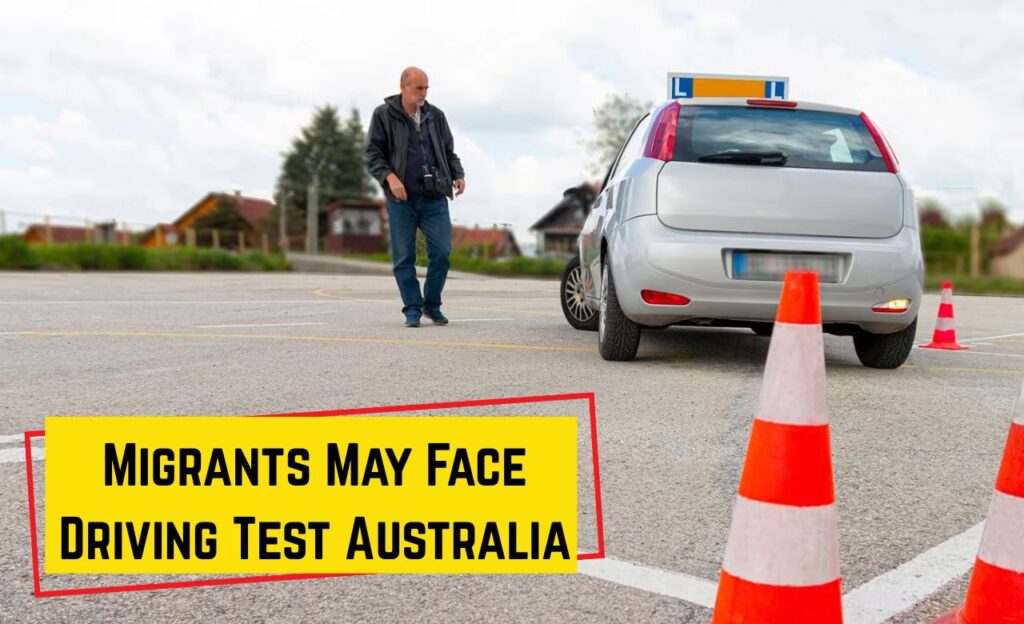License Swap Shock – Migrants in Australia may soon face stricter rules when swapping their overseas licenses. Under the proposed 2025 changes, some migrants could be required to take a mandatory driving test before being allowed to convert their licenses. Authorities believe this move will improve road safety and ensure all drivers understand Australia’s traffic laws. While supporters say it will reduce accidents caused by unfamiliarity with local rules, critics warn it could add stress, costs, and delays for new arrivals. If introduced, the rule will directly affect thousands of migrants settling in Australia each year.

Why Australia is Considering Driving Tests for Migrants
The push for mandatory driving tests is largely driven by rising concerns over road safety and the increasing number of migrants on Australian roads. Authorities argue that not all overseas licenses reflect the same standards of training, testing, or enforcement. For instance, a driver licensed in one country may not have been trained for left-hand traffic or strict speed enforcement practices, which are critical in Australia. By making migrants undergo a local test, officials believe they can ensure greater consistency in driver knowledge and competence. Additionally, with new traffic rules being rolled out across states in 2025, including higher fines and stricter penalties, the government wants to ensure every driver is equally prepared. The goal is not to discourage migrants but to make sure they adapt smoothly to local road systems, minimizing risks for both themselves and other road users.
Possible Challenges Migrants May Face
While the intention behind the rule may be focused on safety, migrants could face practical difficulties if the proposal is implemented. The process of preparing for a driving test in a new country involves more than just learning road rules—it may require hiring instructors, paying fees, and even re-learning driving habits. For example, drivers from right-hand traffic countries could struggle initially to adapt to Australia’s left-hand system. Moreover, language barriers may make studying for written tests harder for some migrants. The added financial cost of lessons and exams could also burden families already adjusting to new living expenses. Critics argue that such hurdles could delay migrants from getting their Australian licenses, restricting their ability to travel for work, education, or daily needs. These concerns highlight the need for the government to balance safety with fairness in implementing the new rules.
How This Rule Could Affect Daily Life
For many migrants, obtaining a valid Australian driving license is a crucial step in settling down. If the mandatory driving test becomes law, it could directly affect employment opportunities, especially for those working in sectors like delivery, transportation, or healthcare, where driving is essential. Families may also struggle with mobility if only one member can pass the test quickly, delaying access to independent transportation. On the flip side, proponents believe that a uniform testing system will instill confidence among all road users, ensuring that migrants are as prepared as locals to follow traffic rules. The long-term benefit, they argue, is a safer and more reliable driving culture across the nation. While the adjustment may seem tough initially, supporters see it as an investment in safety and integration.
 Centrelink Boost from 5 October – Full Updated Payment Rates Announced for Millions of Australians
Centrelink Boost from 5 October – Full Updated Payment Rates Announced for Millions of Australians
What Migrants Should Do to Prepare
Migrants who may be affected by this proposed rule can start preparing in advance. Studying Australia’s road rules, attending driving schools, and practicing under local conditions could help them pass the test more easily if the law is enacted. Some states already require testing depending on the country of origin, so the national policy may just expand existing frameworks. Migrants are advised to stay updated through official government announcements and seek guidance from licensed driving instructors who specialize in helping international drivers. By taking early steps, individuals can avoid delays in obtaining their licenses and ensure smoother adaptation to life in Australia. Whether the rule passes or not, being well-versed in local road laws will ultimately make every driver safer and more confident on the road.
How might the new rules impact migrant communities' access to driver's licenses in Australia?
Migrants may need to retake driving tests due to license swap changes.






